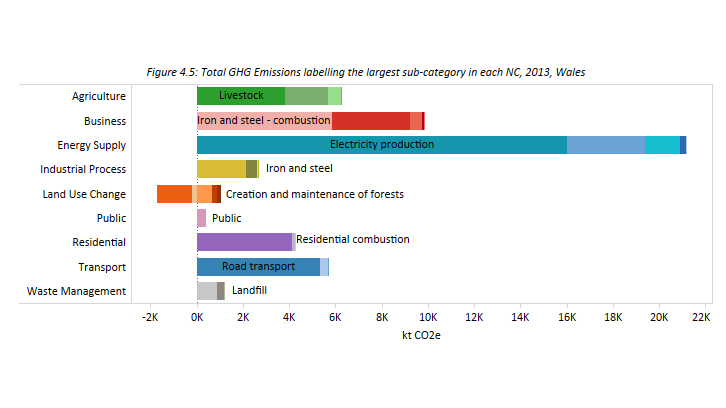Earth Hour this Saturday aims to inspire people to take actions on living sustainably, as the Welsh Government set up Energy Efficiency project to response the climate change.

Major landmarks, organizations and community groups in Wales are getting ready to switch off their lights for an hour on 19th March as part of WWF’s Earth Hour. To show their support for the environment and tackle climate change.
Taking part in Earth Hour is a symbolic gesture of appreciation for our planet. Switching off the lights for an hour is just the start – people across the world will then start thinking about how they can live more sustainable.
Cerith Jones, Media and Campaigns Officer from WWF Cymru says, “Earth Hour is not about saving energy or electricity during the Hour. We aim to inspire action beyond the Hour.”
Anne Meikle, head of WWF Cymru says, “Whether it’s candlelit dinner at home, a stargazing walk or joining a community celebration, Earth Hour offers something for everyone who loves our planet.”
“This year’s Earth Hour in Wales is set to be the biggest and best yet. This resounding message of love for our planet – and the communities, habitats, and wildlife that depend on it – is fantastic. We hope people across Wales will again sign up online and switch off their lights and have fun on the night”, Meikle adds.
All of 22 Wales’s local authorities, 12 land markers including Principality Stadium, the Senedd, Cardiff City Stadium and Cardiff University have all pledged their support.
Mark Williams, General Manager at the Principality Stadium says, “Following Wales’s RBS 6 Nations match against Italy in Cardiff on 19th March, the venue will take part in WWF’s Earth Hour by turning off the lights of the external signage at the venue in support of this important global initiative.”
According to Paul Dunhill, the Climate Strategy Officer from Welsh Government, “the saving of the electricity will be variable according to type of building involved, but as far as offices are concerned assuming a mean of 20% of electricity is used by lighting in buildings, turning lights off will save about 1% of electricity consumption for that day.”
To sign up to Earth Hour click here
According to what the Greenhouse Gas report published in June, 2015, in Wales, Energy Supply sources contributed 42% total GHG (Green House Gas) emissions in 2013.
Energy Supply includes emissions from power generation, refineries, solid fuel transformation, oil and gas extraction and processing and other energy industries. The main source emissions in Wales within the energy supply sector was electricity production at power stations, which accounted for 76% of Energy Supply emissions in 2013. And refinery emissions which accounted for a further 16%. Carbon dioxide is the predominant gas accounting for 97% of emissions from Energy Supply sector, release through the combustion of fossil fuels.

In order to tackle the threat to climate change as well as the poverty in Wales, the Welsh Government formulated the Energy Efficiency in Wales, a strategy for the next 10 years (2016-2026, building resilience for the communities, boosting green growth in economy and addressing the health inequalities caused by poor energy efficiency.
“To protect the long term well-being of our citizens, we need to take action now to improve the energy efficiency of our homes, our businesses and our public sector. The energy system in Wales is on the threshold of considerable change with new energy, technology and low carbon transition opportunities. Ensuring that our buildings are energy efficient will be the bedrock of this transition,” says Carl Sargeant, Minister for Natural Resources.
Improving energy efficiency across Wales will improve the well-being of the people in different ways. According to Welsh Government, it can support households, businesses and other organizations in Wales by saving money, reducing energy security risks and by supporting more sustainable lifestyles.
Energy efficiency reduces the absolute amount of energy that needs to be generated and transported, which, when combined with low carbon energy from the sustainable use of Wales’s natural resources, improves energy security. This is of importance to people and businesses, which are less likely to face energy supply cuts, and it has wider strategic importance for the ability of the UK as a whole to reduce the amount of energy that it has to import from outside.
The price of energy impacts on the ability of people to heat their homes affordably, and it impacts the competitiveness of Welsh businesses in global markets. Inefficient buildings use more energy than they need to, which leads to householders and businesses paying for this waste. Energy efficiency is the most sustainable way to reduce energy bill for the long term.
Greenhouse gas emissions from existing housing and businesses in Wales account for approximately half of the emissions included in the Welsh Government’s target to reduce greenhouse gas emissions by 3% per year in areas of devolved competence. Promoting energy efficiency is a critical component of achieving this target and generally encompasses many of the most cost-effective greenhouse gas reduction measures.
“The Energy Efficiency is not only to meet our climate change targets, but to ensure that our public services can save money and better support essential front line services. It is also offers an opportunity to innovate and to create businesses, jobs and exports”, said Sargeant. “We must take the opportunity now to deliver, through this strategy, real benefits for our society, our economy and our environment.”
